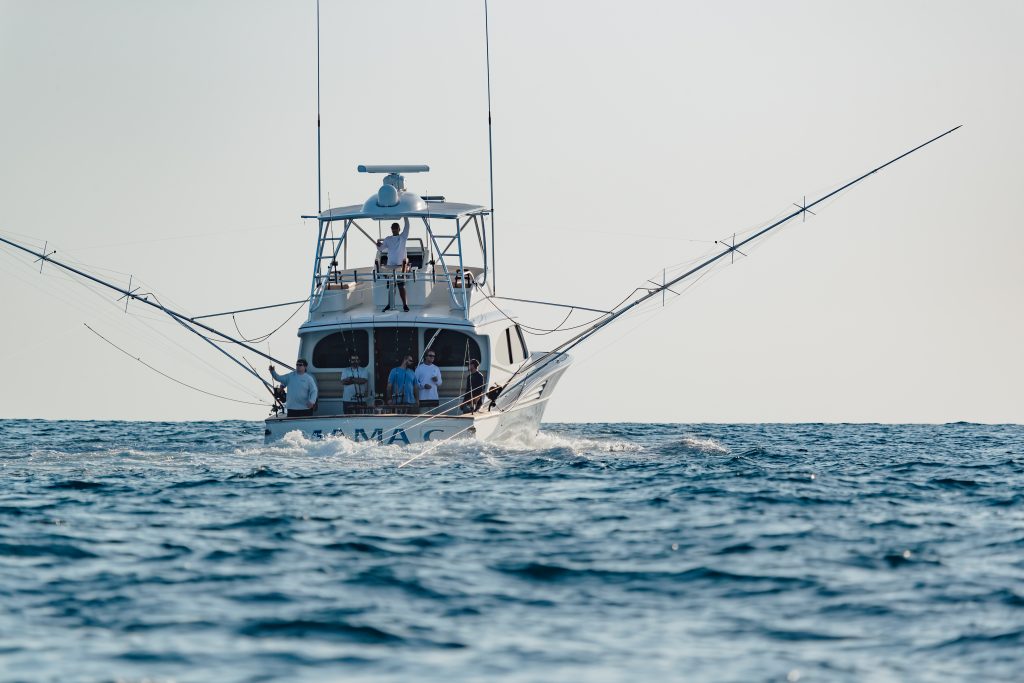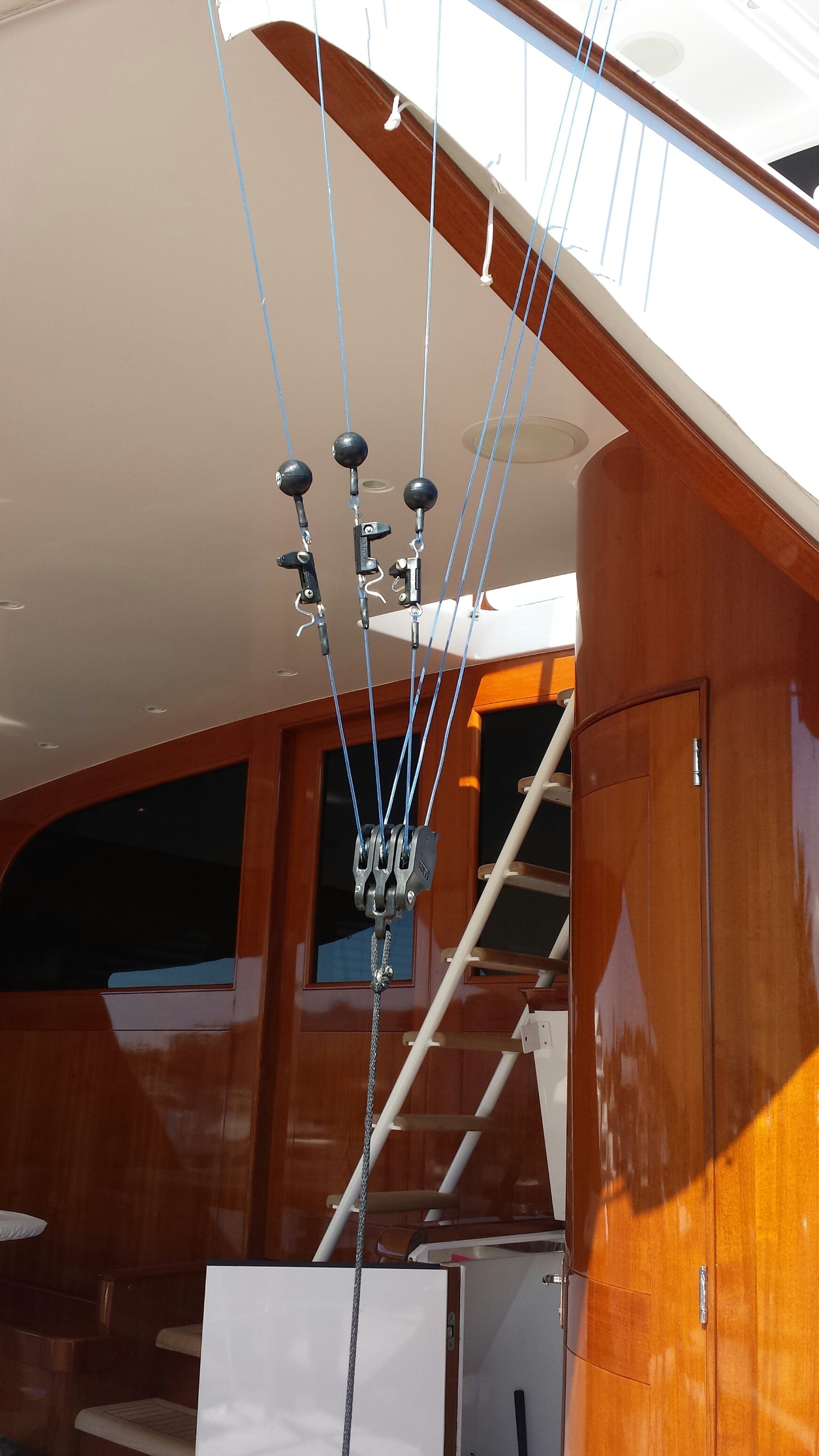When considering outrigger poles for your center console fishing boat, there are two main design types to choose from: telescoping and fixed length. They can be made of either aluminum or carbon fiber, but in this post, we will compare the pros and cons of each design type regardless of material. To learn more about the difference in materials, see our post about aluminum vs. carbon fiber outrigger poles by clicking here.
Fixed Length Outrigger Poles
Fixed length outrigger poles are known for their durability, stability, and customizability. These poles are typically made of high-quality materials and are designed to handle heavy loads and rough conditions. Rupp Marine, a trusted brand in the industry, offers a variety of fixed length outrigger poles to choose from, made from both aluminum and carbon fiber.
Pros:
- Durability: Fixed length poles are generally more durable than telescoping poles due to their fewer moving parts.
- Stability: Fixed length poles are more stable and stiffer than telescoping poles, making them ideal for rough or choppy water.
- Customizability: Fixed length poles can be customized to your exact needs, such as color, length and a variety of fixed styles.
- Cost: fixed poles are generally less expensive (per foot) than telescoping poles.
Cons:
- Limited versatility: Fixed length poles are typically designed for a specific boat size and fishing conditions and cannot be retracted.
- Limited storage: Fixed length poles are not collapsible, making them difficult to store on smaller boats or in limited storage spaces.
Telescoping or Collapsible Outrigger Poles
Telescoping outrigger poles are known for their adjustable length and easy storage. These poles are typically made of lightweight materials and are easy to handle and transport. Rupp Marine also offers a variety of high-quality telescoping outrigger poles for those who prefer this type.
Pros:
- Adjustable length: Telescoping poles can be adjusted to different lengths, making them versatile and suitable for various types of fishing boats and conditions.
- Easy storage: Telescoping poles can be collapsed and stored easily, saving valuable space on the boat when not in use.
- Lightweight: Telescoping poles are typically made of lightweight materials, making them easy to handle and transport.
- Trailering: Telescoping poles are generally preferred for those that trailer their boats as they can be collapsed to reduce stress on hardtop during transit.
- Rack Storage: Telescoping outrigger poles can be easily collapsed so they dont interfere with the fork lift during haul-out and storage activities.
Cons:
- Durability: Telescoping poles are generally not as durable as fixed-length poles as they have more moving parts that need to be maintained.
- Limited strength: Because of their lightweight design, telescoping poles may not be suitable for heavy-duty fishing or very rough conditions.
- Maintenance: Telescoping poles require regular maintenance, including cleaning and lubrication, to prevent rust and corrosion build-up in the locking components.
- Stability: Telescoping poles may not be as stiff as fixed-length poles and may flex in rough conditions or under heavy loads.
Choosing between telescoping and fixed length outrigger poles ultimately comes down to personal preference, fishing and boating needs. When searching for outrigger poles, make sure to do your research and choose a reputable brand like Rupp Marine, which offers both types of outrigger poles in a variety of sizes and materials.
Investing in high-quality outrigger poles is crucial for a successful and enjoyable day of fishing. So, make sure to weigh the pros and cons of each type before making a decision and select the one that best meets your needs and budget.



